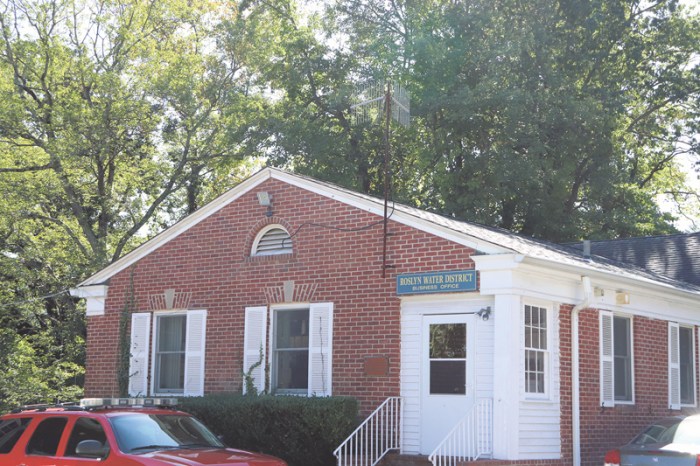
First came the political. Then the personal. As if the two could be neatly separated.
On March 12, hours before the meeting of the full Nassau County Legislature, Presiding Officer Richard Nicolello (R–New Hyde Park) held a press conference and made his final pitch for introducing a referendum on November’s ballot to bring back an elected assessor.
Such a proposal had passed by an 11-8 party-line vote back in February, but was vetoed by County Executive Laura Curran. The Republican Majority needed two votes from the Democratic Caucus to achieve a 13-6 supermajority to override the veto, but failed to gain it on April 12.
As Curran geared up for reelection this November, the Republicans have made hay of what they allege are mistakes and structural faults in the reassessment she introduced in the year after first being elected in 2017. Under her predecessor, Ed Mangano, the assessment had been frozen and Curran argued that it led to unfair valuations, with many residents able to successfully lower their tax burdens, shifting it to those who had not grieved their assessed values.
Nicolello said, “Today’s vote is to override the county executive’s veto. What it does not do is create an elected assessor. What it does is create a referendum that allows the people to make a decision—the people make the choice, and we trust in that choice.”
He added, “Assessment is one of the most important functions that the county has. It’s vital that our assessment be accurate, be fair and be transparent. It has been none of these things.”
Nicolello focused on the transparency aspect, charging, “The administration has done a miserable job of providing information to our residents. Over the course of the last three years, it has been the legislators who’ve filled in the gaps. We’ve had town halls, we’ve had call-ins, we’ve put the information on our websites [because] the administration has failed.”
He noted that residents have had to sue the administration to get basic information and the legislature had to force the executive branch to send out tax impact statements.
“I’m not blaming the staff at the Department of Assessment. They are hard-working, qualified, dedicated people there,” Nicolello affirmed. “I’m not even blaming the former assessor [David Moog]—he’s a smart man, has the qualifications. He’s an experienced assessor, but he’s essentially a bureaucrat. We’re blaming the administration. Their leadership on this issue failed completely and has been a complete lack of transparency.”
Residents Weigh In
The presiding officer then introduced Massapequa residents Susan Johnson and Owen Cumisky, who talked about their experiences with reassessment.
“Basically I’m here because I’m still trying to understand why my assessment is not both fair and accurate,” Johnson said. “I’ve been trying to move on from [Superstorm] Sandy. I’m still in the New York Rising Program and I’m still trying to finish my repairs. I had no choice but to replace my home after Sandy destroyed it. So now after the financial hit I took, this reassessment has more than doubled my taxes and I don’t see that as fair.”
Cumisky called himself “A lifelong resident of Massapequa, Oyster Bay, Nassau County. Twenty-eight years ago, I brought a home in Massapequa and I’m proud—or I was proud—to be taxpayer. It afforded me certain privileges. Schools, safety, parks for my kids to play in. Waterfront community. I was proud to be a taxpayer.”
But he, too, had been victimized by Sandy and had no choice but to replace his house and lift it 11 feet to protect against future floods. Because of an oversight in the reassessment process, new construction was not eligible for Curran’s Taxpayer Protection Plan to spread out the tax increases over five years. A bill now before Governor Andrew Cuomo will fix this loophole.
“Then one day, in 2018, my taxes went from $12,000 to $26,000. Overnight,” Cumisky related of the new assessment. “I don’t know if anyone here can afford $1,000 a month out of their daily budget to afford such ridiculous reassessment.”
Referring again to his tax burden, Cumisky observed, “I live in a house that’s 1,400 square feet. That could fit in my peers’ homes twice. And I’m paying more taxes than someone with twice as much property and a house twice as [big as] mine. Assessment is one word. Arbitrary is another.”
Parties React
After the veto override failed, William Biamonte, chief of staff for the Minority Legislature Caucus, issued the following statement:
“Members of the Majority sat on their hands for the better part of a decade while the previous county executive systemically dismantled the integrity of our tax rolls. With that sort of dubious track record, why on Earth should Nassau homeowners take their advice on how to restore fairness and integrity to a system they were complicit in breaking? Now that their badly flawed bill has been defeated for a second time, it’s time for the Majority to stop treating assessment like a political football.”
Nicolello, in reacting to the vote, said, “After the mistakes and errors that have plagued the reassessment process and resulted in tax increases to 65 percent of homeowners, the right decision would have been to allow Nassau residents to decide if they wanted an assessor who can be held accountable by the people. The Minority’s decision to support the county executive’s political appointee denies the public a choice in the matter. We will continue to fight for the people of Nassau County, and work to make the county executive’s reassessment more fair, accurate, and transparent.”





























